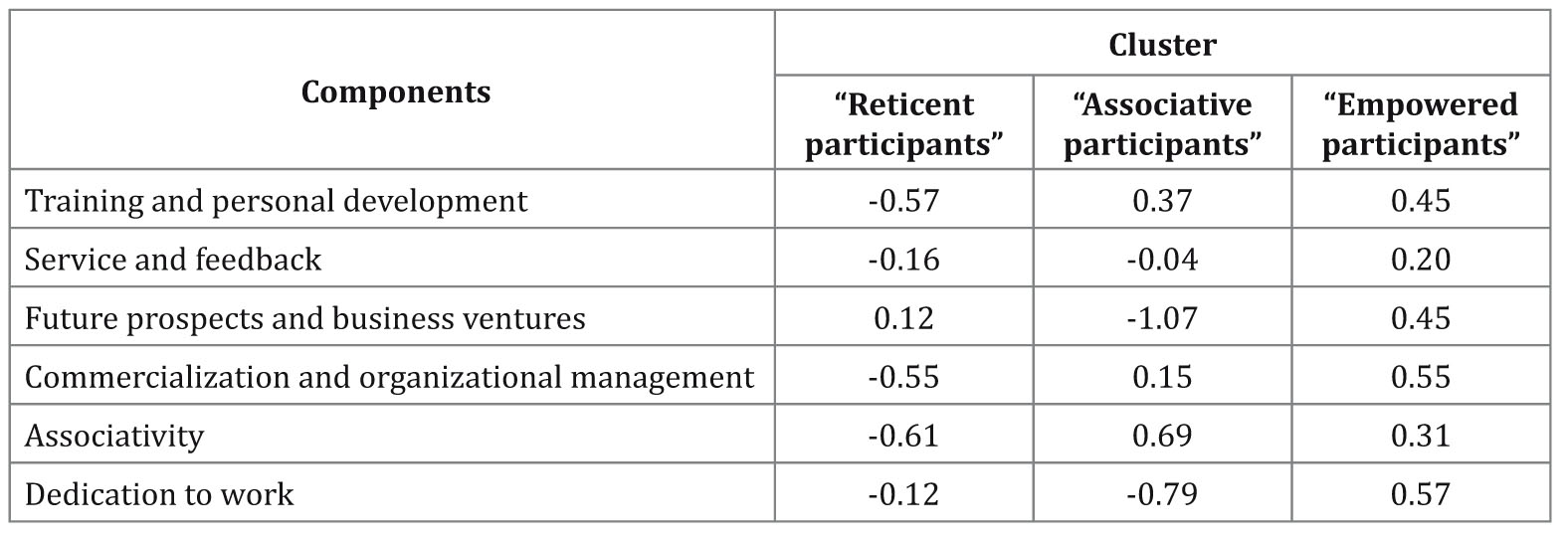Development programs for female farmers: identifying clusters for the case of Chile's "Education and training program for rural women"
Keywords:
female farmers, public policies, rural development, attitudes, clusters, ChileAbstract
This article aims to contribute to the evaluation of development policies for female farmers based on their beneficiaries' attitudes. For this, it was conducted a survey in the Metropolitan Region of Santiago, Chile, to a representative sample of participants in the "Education and training program for rural women" of the Chilean National Institute for Agricultural Development. The questionnaire applied was divided into the following sections: i) personal characteristics of the farmers and their family unit; ii) technical, productive and commercial features; iii) farm and household income; and iv) vision of themselves and program-related attitudes. The data collected was processed by descriptive and multivariate techniques such as principal components and cluster analysis. The results show a positive assessment of the program on an aggregate level, although there are significant dissimilarities within the sample, allowing three clusters to be identified: "reticent participants" (42.3%), "associative participants" (20.5%) and "empowered participants" (37.2%). The farmers on those clusters present differences not only in their attitudes towards the program but also in their education level, income, farm profitability and balance between productive and domestic roles. It's concluded that individual characteristics and circumstances impact beneficiaries’ perception of the programs, which should be considered in their design and implementation.

Downloads
Published
Issue
Section
License
Aquellos autores/as que tengan publicaciones con esta revista, aceptan las Políticas Editoriales.


